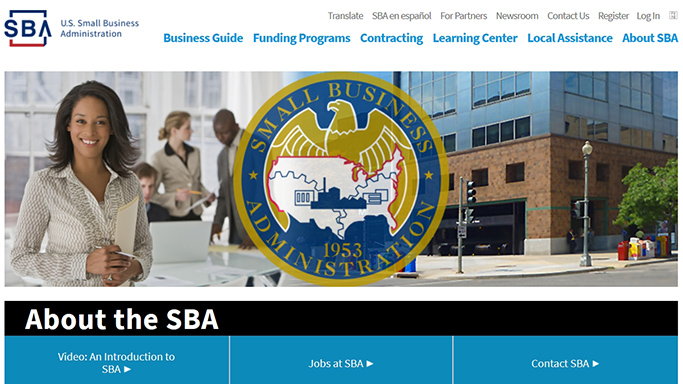
by Wayne Ohio | Oct 2, 2020 | Blog
WAYNE COUNTY, OH, Oct. 2, 2020 — The Wayne County Commissioners have, once again, decided to support local small businesses by dedicating another $400,000 in a third round of Coronavirus Aid, Relief, and Economic Securities (CARES) Act grant funding to local businesses impacted by the coronavirus pandemic by further reducing the restrictions involved in applying for a Wayne County Small Business Relief Program grant.
Rounds one and two of the grant program have been successful, with local small businesses receiving more than $300 thousand in non-repayable grants.
“We are pleased to have been able to assist more than 60 businesses in the first two rounds and are hopeful that the lessening of restrictions opens the door to help even more small businesses,” Commissioner Sue Smail said. “It should be noted that agricultural businesses are also eligible to apply.”
As with previous funding rounds, the Wayne County Economic Development Corporation (WEDC) is overseeing the program. Applications for the grant may be submitted online at www.waynecountyedc.com.
According to Kelly Haer, WEDC’s director of business retention and expansion, businesses that may not have qualified previously should re-examine the criteria.
“The goal is to serve as many organizations as we can,” Haer said. “The major reductions in criteria for the grant include the number of employees a business can have and their annual revenue.”
Applications for the grant are being accepted through October 16, 2020, and each business may receive up to $5,000.
CRITERIA FOR SMALL BUSINESS GRANT
- Must be an ongoing business and have a physical address in Wayne County (grant funding is to be used for that location)
- Must have 50 or fewer employees and have been in business for a year
- Must be a for-profit entity
- Must have a Federal Taxpayer Identification Number
- Must have experienced a decrease in gross revenue/receipts of 35% or more due to COVID-19 when comparing March 1 – May 31, 2020, to March 1 – May 31, 2019
- Must have less than $2 million in gross revenue/receipts on an annual basis
- Must be able to attest that it complies with federal, state, or county and local regulations and not delinquent in any taxes
- Must be able to attest that it is not currently in bankruptcy
- INELIGIBLE SMALL BUSINESSES
- Adult entertainment establishment
- Bank, savings and loan or credit union
- E-commerce only company
- Liquor/wine store
- Vaping store
- Tobacco store
- Cannabis dispensary
- Franchised business not locally owned and independently operated
ELIGIBLE EXPENSES
- Grant funds provided by Wayne County’s Small Business Relief Program can only be used to pay the expenses of the business related to the costs of business interruption or required closure caused by the pandemic up to a maximum of $5,000. Eligible expenses include, but are not limited to:
- Mortgage Costs. Mortgage costs for businesses that are located in or operated out of a personal residence are not an eligible expense
- Rent or Lease Costs. Rent or lease costs for businesses located in or operated out of a personal residence are not an eligible expense.
- Expenses for utilities, such as electric, gas, sewer, water, trash removal. Utility costs for businesses located in or operated out of personal residence are not an eligible expense.
- Salaries, wages, or compensation paid to employees or 1099 workers.
- Materials and supplies related to the interruption of the business caused by required closures.
- Personal Protective Equipment or other COVID-19 related costs such as expenses related to compliance with Responsible Restart Ohio.
Sole proprietors can use grant funding as income replacement by providing documentation on lost revenue from March 1 through May 31, 2020, due to COVID-19 so long as no unemployment benefits are being received or are expected to be received by the Applicant. If not already submitted, upload the most recent filed Schedule C – Profit or Loss from Business (Sole Proprietorship)
Grant funds can be used to reimburse eligible expenses incurred from March 1, 2020. The business shall submit an itemized list of all expenditures along with all supporting documentation. Documentation shall be in the form of paid invoices and canceled checks, bank statements, or similar document showing payment of Eligible Expenses. If the business cannot properly substantiate its eligible expenses, it will be considered non-eligible for the Small Business Grant.
INELIGIBLE EXPENSES
- Cost of vehicle or equipment leased or purchased after March 23, 2020, except if the purchase of equipment is to comply with Restart Ohio.
- Personal non-business expenses of the business or its owner(s)
- Construction costs
- Any tax, license, or fee obligations payable to any governmental entity
PROCESS
- Application – A business interested in participating in the program must fill out the application to determine if it meets all of the eligibility criteria set forth above.
- Funds Available – Third round grants will be funded using a lottery method until all funds have been expended.
- Payment and Signed Agreement – If approved for a grant, the business must sign and return the Grant Agreement within ten calendar days of receipt and provide a W-9 for grant fund payment.
Listen to the WQKT Radio ad by Commissioner Sue Smail HERE.
By Dan Starcher, public communications specialist for the Wayne County government.

by Wayne Ohio | Jul 24, 2020 | Blog
WAYNE COUNTY, OHIO, July 24, 2020 — The Wayne County Commissioners announced today that they would dedicate $500,000 from the Coronavirus Aid, Relief, and Economic Securities Act (CARES) money received by the county to area small businesses in the form of grants.
“We are pleased to be able to make these funds available to small businesses who have been negatively impacted by the COVID-19 pandemic,” Wayne County Commissioners Becky Foster, Sue Smail, and Ron Amstutz said in a joint statement. “The program will be managed and administered by the Wayne Economic Development Corporation (WEDC) as appropriated by the commissioners, and we are very grateful for their assistance.”
The CARES Act was signed into law earlier this year.
“The commissioners do not want too many restrictions placed on the money,” said Tom Pukys, President of the WEDC. “The important thing is that this money from the county gets into the hands of area businesses that haven’t received any economic assistance due to the shutdown and the ongoing pandemic.”
Applications for the grant may be submitted online at www.waynecountyedc.com.
“There is a list of eligible expenses, but that list is pretty liberal,” Pukys continued. “It is a grant, not a forgivable loan, and it doesn’t need to be paid back.”
Many area small businesses have expressed a need for financial assistance because of the pandemic.
According to Pukys, employers had to cut expenses and layoff their employees during a time of reduced revenue and sales.
“They also incurred expenses implementing safety and sanitation initiatives like putting up shields and purchasing masks,” he said. “These are unbudgeted expenses they experienced.”
Business owners may apply for a maximum of $5,000.
CRITERIA FOR SMALL BUSINESS GRANTS
1. Must have a physical address in Wayne County, and grant funding is to be used for that location.
2. Have 25 or fewer employees.
3. Must be a for-profit entity.
4. Must have a Federal Taxpayer Identification Number.
5. Must have experienced a decrease in gross revenue/receipts of 35% or more due to COVID-19 when comparing March 1 – May 31, 2020, to March 1 – May 31, 2019.
6. Must have less than $1million in gross revenue/receipts on an annual basis
7. Must not have received or been approved for other federal assistance for lost revenue or expenses arising from the pandemic, including Paycheck Protection Program, Emergency Disaster Loan.
8. Must be able to attest that it complies with federal, state, or county and local regulations and not delinquent in any taxes.
9. Must be able to attest that it is not currently in bankruptcy.
INELIGIBLE SMALL BUSINESSES
1. Adult entertainment establishment.
2. Bank, savings, and loan or credit union.
3. E-commerce only company.
4. Liquor/wine store.
5. Vaping store.
6. Tobacco store.
7. Cannabis dispensary.
8. Franchised business not locally owned and independently operated.
Grant funds provided by Wayne County’s Small Business Relief Program can only be used to pay the expenses of the business related to the costs of business interruption that required closure caused by the pandemic.
ELIGIBLE EXPENSES INCLUDE BUT ARE NOT LIMITED TO
1. Mortgage Costs. Mortgage costs for businesses located in or operated out of a personal residence are not an eligible expense.
2. Rent or Lease Costs. Rent or lease costs for businesses located in or operated out of a personal residence are not an eligible expense.
3. Expenses for utilities, such as electric, gas, sewer, water, trash removal. Utility costs for businesses located in or operated out of personal residence are not an eligible expense.
4. Salaries, wages, or compensation paid to employees or 1099 workers.
5. Materials and supplies related to the interruption of the business caused by required closures.
6. Personal Protective Equipment or other COVID-19 related costs such as expenses related to compliance with Responsible Restart Ohio.
7. Sole proprietors can use grant funding as income replacement by providing documentation on lost revenue from March 1 through May 31, 2020, due to COVID-19 so long as no unemployment benefits are being received or are expected to be received by the Applicant. If not already submitted, upload the most recent filed Schedule C – Profit or Loss from Business (Sole Proprietorship).
INELIGIBLE EXPENSES
1. Cost of vehicle or equipment leased or purchased after March 23, 2020, except if the purchase of equipment is to comply with Restart Ohio.
2. Personal non-business expenses of the business or its owner(s)
3. Construction costs.
4. Any tax, license, or fee obligations payable to any governmental entity.
PROCESS
1. Application — A business that is interested in participating in the program must fill out the form to determine if it meets all of the eligibility criteria set forth above. The deadline for application submission is August 10, 2020.
2. Funds Available — Grants are funded on a first-come, first-served basis until all available funds have been allocated. The date used for this determination will be the date and time the application is received by the Wayne Economic Development Council.
3. Payment and Signed Agreement — If approved for a grant, the business must sign and return the Grant Agreement within ten (10) calendar days of receipt and provide its bank routing number for grant fund payment.
Posted by Dan Starcher, public communications specialist for the Wayne County government.

by Wayne Ohio | Oct 4, 2019 | Blog
WAYNE COUNTY, OH, Sep. 2019 — The U.S. Small Business Administration announced recently that Economic Injury Disaster Loans are available to small businesses, small agricultural cooperatives, small businesses engaged in aquaculture, and private nonprofit organizations located in Ohio as a result of excessive rain and flooding from Jan. 1 through Aug.13, 2019.The loans are available in the following counties: Adams, Allen, Ashland, Athens, Auglaize, Champaign, Coshocton, Crawford, Darke, Defiance, Delaware, Fairfield, Franklin, Gallia, Hancock, Hardin, Henry, Highland, Hocking, Holmes, Huron, Jackson, Knox, Lawrence, Licking, Logan, Madison, Marion, Medina, Meigs, Mercer, Monroe, Morgan, Morrow, Noble, Paulding, Perry, Pickaway, Pike, Putnam, Richland, Ross, Scioto, Shelby, Stark, Summit, Tuscarawas, Union, Van Wert, Vinton, Washington, Wayne and Wood in Ohio.
“When the Secretary of Agriculture issues a disaster declaration to help farmers recover from damages and losses to crops, the Small Business Administration issues a declaration to eligible entities, affected by the same disaster,” said Kem Fleming, director of SBA’s Field Operations Center East.
Under this declaration, the SBA’s Economic Injury Disaster Loan program is available to eligible farm-related and nonfarm-related entities that suffered financial losses as a direct result of this disaster. With the exception of aquaculture enterprises, SBA cannot provide disaster loans to agricultural producers, farmers and ranchers. The loan amount can be up to $2 million with interest rates of 3.74 percent for small businesses and 2.75 percent for private non-profit organizations of all sizes, with terms up to 30 years.
The SBA determines eligibility based on the size of the applicant, type of activity, and its financial resources. Loan amounts and terms are set by the SBA and are based on each applicant’s financial condition. These working capital loans may be used to pay fixed debts, payroll, accounts payable, and other bills that could have been paid had the disaster not occurred. The loans are not intended to replace lost sales or profits.
Applicants may apply online using the Electronic Loan Application (ELA) via SBA’s secure website at Disasterloan.sba.gov.Disaster loan information and application forms may also be obtained by calling the SBA’s Customer Service Center at 800-659-2955 (800-877-8339 for the deaf and hard-of-hearing) or by sending an email to disastercustomerservice@sba.gov. Loan applications can be downloaded from Disasterloan.sba.gov. Completed applications should be mailed to U.S. Small Business Administration, Processing and Disbursement Center, 14925 Kingsport Road, Fort Worth, TX 76155. Submit completed loan applications to SBA no later than May 6, 2020.
Posted by Dan Starcher, public communications specialist for the Wayne County government.


